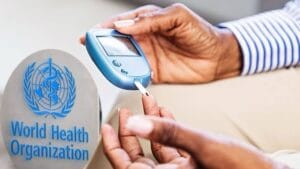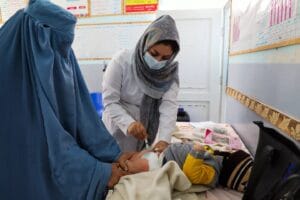NYS research institute awards health grants to support X syndrome

New York State’s Institute for Basic Research has awarded two grants to support groundbreaking research into fragile X syndrome premutations and environmental influences on child health outcomes.
According to a press release on Wednesday July 13, 2021, two research teams at the New York State Institute for Basic Research in Developmental Disabilities (IBR) on Staten Island were awarded two grants totaling $987,000 over five years from the National Institutes of Health (NIH).

The grants, according to the statement, will support groundbreaking research that will further the understanding of intellectual and developmental disabilities and ultimately improve both care and quality of life for people affected.
Mohammad Arif, PhD, Head of the Molecular Diagnostic Laboratory in IBR’s Department of Human Genetics, will lead a team as part of a multi-site study of the neurodevelopmental risks for autism, attention deficits, mood disorders, or cognitive difficulties in children with the premutation for fragile X syndrome. This study will be headed by the City University of New York Queens College.
Dr. Arif’s team will conduct molecular diagnosis of fragile X syndrome and determine the disease characteristics for all families with the fragile X mutation participating in the study.
Fragile X syndrome is the most common inherited form of intellectual disability and the most common single-gene cause of autism. It results from a section of repetitive DNA in the FMR1 gene that is more than 200 repeats long.
Fragile X premutations are alterations in the FMR1 gene consisting of a section of repetitive DNA that is 41 to 200 repeats long, which can expand into the full mutation in the following generation.
Premutation carriers have an increased risk of developing memory deficit, anxiety, and depression in addition to neurological movement disorder and primary ovarian insufficiency later in life.
OPWDD Commissioner Theodore Kastner, MD, MA, said, “This study will provide invaluable information for families and children with fragile X premutation alleles or DNA coding that will improve the care of these children throughout their lifetimes.”
Carolyn Salafia, MD, MS, head of the Placental Modulation Laboratory in IBR’s Department of Developmental Neurobiology, will lead a team in stabilizing and preserving placental specimens for anatomical, histological, molecular, and vascular assessments.
This project is part of a multi-institution study headed by the University of Rochester and is funded by NIH’s Environmental influences on Child Health Outcomes (ECHO) initiative.
The specimens will be examined for any abnormalities that may clarify how life before birth impacts childhood and lifelong health risks. Understanding of how the fetus can be impacted before birth will make it possible to develop targeted diagnostics and interventions to foster child health.
“This study will add significant new information to our understanding of which early environmental exposures may confer risk on child health, and the timing and mechanisms of these effects,” said Dr. Kastner.
“This information will provide a foundation to know how and when in development to intervene to promote improved child health outcomes.”
Located in Staten Island, IBR consists of six research departments and 32 laboratories that focus on the causes of developmental disabilities and furthers the understanding of brain development and pathology. IBR’s goals are to provide the means to diagnose, prevent and treat developmental disabilities more effectively.
IBR also provides extensive, specialized biomedical, psychological and laboratory services to people with developmental disabilities and their families, and educates the public, researchers and health and education professionals regarding the causes, diagnosis, prevention and treatment of developmental disabilities.
IBR’s George A. Jervis Clinic offers specialized diagnostic and consultative services for children, adolescents, and adults with intellectual and/or developmental disabilities.
OPWDD is responsible for coordinating services for New Yorkers with developmental disabilities, including intellectual disabilities, cerebral palsy, Down syndrome, autism spectrum disorders, Prader-Willi syndrome and other neurological impairments.














